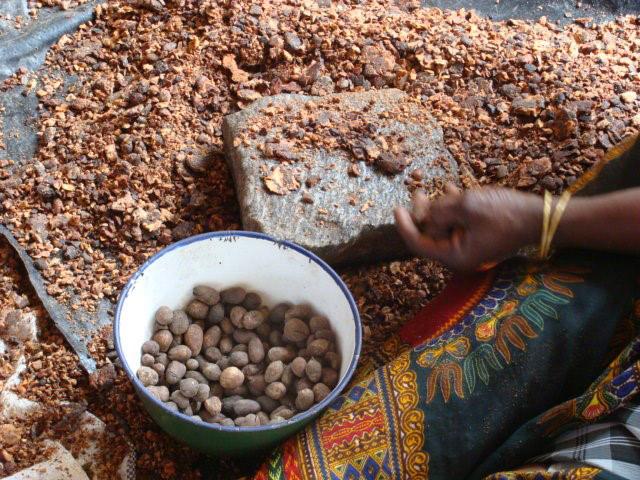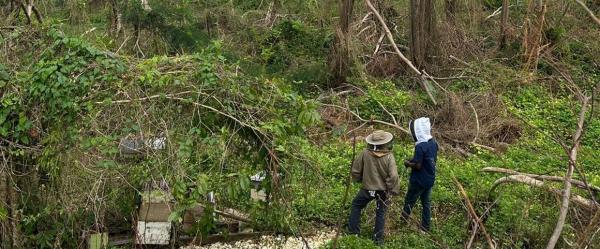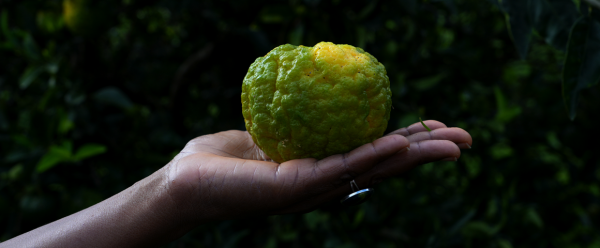Science at work 14 January 2026
- Home
- CIRAD news
- News
- BIOSTAR: supplying sustainable bioenergy to food sector SMEs in the Sahel
BIOSTAR: supplying sustainable bioenergy to food sector SMEs in the Sahel

Improving energy supply to food processing SMEs thanks to bioenergy in the countries of the Sahel is the goal of the BIOSTAR project . Coordinated by CIRAD in collaboration with nine African and European partners – research and civil society –, it is part of the major European DeSIRA programme. Its five-year funding (2020-2024) is provided by the European Union and the Agence Française de Développement, with a total budget of more than 11 million euros .
A potential energy source for local food sector SMEs
In West Africa, access to energy in rural areas is often erratic, expensive and insufficient. To secure energy supplies , agrifood processing SMEs are forced to set up in city suburbs. As a consequence, transporting raw materials from agricultural production areas generates extra costs and results in post-harvest losses. In addition, urban concentration is increasing, at the expense of rural areas, which are struggling to develop since their activity is consequently limited to agriculture.
These companies also generate organic waste that, if poorly managed, causes problems in terms of public health and safety and/or environmental contamination. Nevertheless, this biomass – cashew and shea nut shells, groundnut shells, mango kernels or rice husks – is a potential source of energy: heat, mechanical power and electricity. Hence the objective of BIOSTAR, in other words setting up bioenergy production units in food sector SMEs that are fed by their organic residues.
Success is conditioned by the quality of supply of organic residues
Starting this year, the project will focus on Senegal and Burkina Faso, where five agrifood sectors – cashew nut, groundnut, shea, mango and rice – have been identified. In collaboration with local interprofessional organizations, the project will look for SMEs that have the capacity to innovate and are representative of their sector in order to define with them their energy needs and to find solutions for a sustainable supply of residues. The latter point is crucial: in 2013 , a study conducted by CIRAD showed that in different countries, including Burkina Faso, the quality of supply conditioned the success or failure of bioenergy production systems in rural areas. Next, 16 prototypes of bioenergy production equipment will be adapted to the situation of each SME and installed by Sahelian or European suppliers. At the end of the project, the experimental units will be transferred to the SMEs. Finally, a training programme will be deployed in order to develop the bioenergy sector in Sahelian Africa, thanks in particular to the involvement of local, national and sub-regional policymakers. The goal of this process is to implement a policy framework that is more conducive to this development in rural areas.
More dynamic and energy-independent rural areas
Eventually, thanks to cheaper, stable energy, these SMEs will be able to relocate to rural areas, closer to the production of raw materials, which should have a domino effect. For companies, this means less transport and reduced post-harvest losses. Moreover, better preservation of processed products will contribute to food security for all actors in the chain, whether farmers or SME employees, who are often women. In other words, rural areas will become more energy-independent and dynamic. Finally, and more broadly, better management of these methane-producing residues and a reduction in the use of fossil fuels will help to reduce the sector’s impact on climate change .
Partners
- CIRAD (coordinator)
National research and academic establishments in West Africa
- 2iE
- IRSAT
- Ouagadougou II University
- ISRA/BAME
- Gaston Berger University, Saint-Louis-du-Sénégal
Research organizations in Europe
- UCLouvain, Belgium
- Institute of Agricultural Engineering, University of Hohenheim, Germany
- Roma III University, Italy
Nongovernmental organization
- Nitidae
The DeSIRA initiative The DeSIRA initiative (Development Smart Innovation through Research in Agriculture) was launched during the One Planet Summit in Paris in December 2017. It is headed by the European Commission Directorate General for International Cooperation and Development (DG DEVCO) and is articulated with the Bill & Melinda Gates Foundation. It is aimed at boosting innovation in agriculture and the transformation of food systems in partner countries to make them more resilient to the effects of climate change. It seeks to strengthen research partnerships (Europe and global South), to promote research in partnership with development stakeholders, and to focus on impact-oriented research. |



























